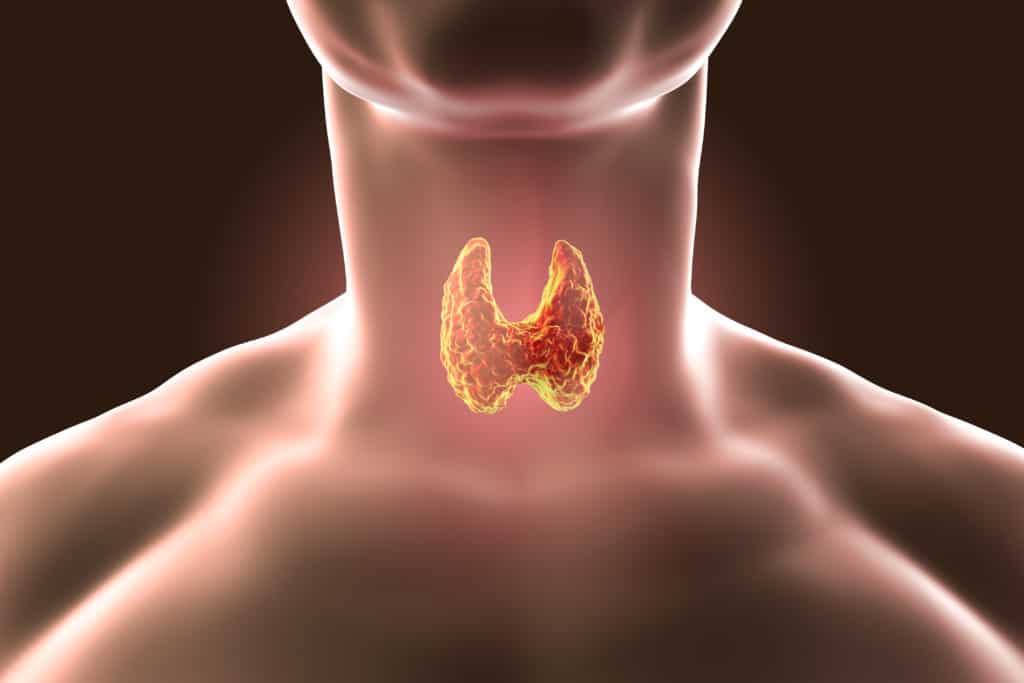The thyroid, a tiny, butterfly-shaped gland located at the base of the neck, just below the Adam’s apple, has a tremendous impact on your overall health. It affects the functioning of every organ in the body, guides most bodily functions, and regulates metabolic processes, body temperature, and even the rate of your heartbeat. When the thyroid breaks down, it can wreak havoc on the body.
“As an endocrinologist, I’m a hormone specialist, and one of my areas of great interest is in thyroid disease,†says Robert Constant, M.D., F.A.C.E., a board-certified clinical endocrinologist specializing in internal medicine and metabolism at the Diabetes and Endocrine Center of Orlando.
When your thyroid is not working properly, it can lead to a host of symptoms, which may present themselves slowly and inconspicuously. However, it is vital to listen to your body, monitor any changes, and talk to your doctor if you have any concerns.
What Is Hyperthyroidism?
Hyperthyroidism occurs when the thyroid gland becomes overactive and secretes more thyroid hormones than are necessary. The overproduction floods the body with thyroid hormones and as a result, causes a variety of essential processes to increase, including energy use, metabolism, and heart and nervous system functioning.
“Hyperthyroidism is a disease that we deal with when patients are referred to us by other providers,†says Dr. Constant. “The patient will typically go to their primary care doctor when they have specific symptoms that indicate they might have thyroid disease. The primary physician will then do thyroid testing, and if they confirm the patient is hyperthyroid, they will refer them to us.â€
Hyperthyroidism develops more often in adults over 60 and affects women more than men.
Symptoms of Hyperthyroidism
 According to Dr. Constant, the common symptoms typically associated with hyperthyroidism include a feeling of significant tension and anxiety, palpitations, and a subjective sense the heart is either beating rapidly or irregularly.
According to Dr. Constant, the common symptoms typically associated with hyperthyroidism include a feeling of significant tension and anxiety, palpitations, and a subjective sense the heart is either beating rapidly or irregularly.
A surplus of thyroid hormones can provoke:
- Weight loss
- Irregular heartbeat
- Irritability
“Patients will also observe heat intolerance, that they’re very uncomfortable and feel hot when everybody else is feeling perfectly normal,†says Dr. Constant. “They may notice that their pulse rate is elevated and that they’re experiencing fatigue. Particularly, patients will observe that they have decreased exercise tolerance, and get very tired when they do the least amount of activity. And they’ll notice that their pulse rate tends to rise very rapidly with levels of exercise that normally would not prompt pulse rates to rise like that.â€
“Patients may discover they have excessive sweating or notice very fine tremors, particularly when trying to do something detailed. These are the kinds of symptoms the doctor will pick up on and examine thyroid levels to see whether the patient has hyperthyroidism.â€
What Is Primary Hypothyroidism?
Opposite to hyperthyroidism, hypothyroidism is an illness occurring when the thyroid gland doesn’t produce enough thyroid hormones to manage critical bodily functions properly. This hormone deficiency causes specific functions of the body to decrease like heart rate, brain functioning, and how fast food is converted into energy.
“Interestingly, an underactive thyroid is a type of disease where if a patient is being followed appropriately, the physician may be aware the patient has hypothyroidism before they do,†Dr. Constant continues. “The testing we do is extremely sensitive, and it can very often identify the disease before the patient begins to have symptoms. It is not uncommon, however, for patients to come to their doctor with a constellation of symptoms for which we then diagnose thyroid disease.â€
Women over 60 possess the highest risk for developing hypothyroidism. If left untreated, the disease can generate a number of health complications, including obesity, joint pain, infertility, and heart disease.
Symptoms of Hypothyroidism
With an underactive thyroid, your immune system is triggered to fight your thyroid, causing inflammation and fatigue, making the condition easily confused with other conditions such as iron deficiency.
“The common symptoms that we look for are typically a patient with cold intolerance, a patient who feels like they’re colder than their peers all the time,†says Dr. Constant. “That is particularly important if they notice that this is different than their personal norm. All of us have a certain set point for how we feel about different temperatures, and if that changes dramatically, that could signal an underactive thyroid.â€
“These patients will also have problems with fatigue. Fatigue is a common problem that we see in primary hypothyroidism. It’s a very non-specific symptom. There are many different kinds of problems that can cause fatigue, but the thyroid is certainly one of the foremost among them.
Other common symptoms of hypothyroidism may include:
- Unexplained weight gain
- Depression
- Hair loss
- Muscle cramps
- Dry skin and brittle nails
- Goiter (swelling of the thyroid gland)
- Irregular menstrual periods
“Patients can have a slower heart rate and maybe slightly lower blood pressure,†Dr. Constant adds. “They may have problems with constipation, and they could notice dry skin or dry hair. These are the symptoms that we commonly see in patients who have primary hypothyroidism, particularly when these symptoms are seen together or as a collection of symptoms; they really point us to look at thyroid as a possible etiology.â€
If you have any questions, concerns, or would like to learn more about thyroid disease, please feel free to contact us.





Leave A Comment